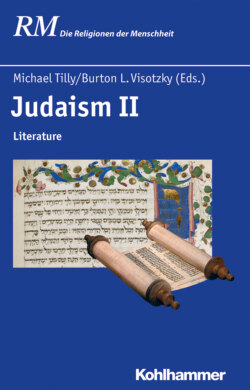Читать книгу Judaism II - Группа авторов - Страница 40
На сайте Литреса книга снята с продажи.
NJPS
ОглавлениеThe translation of the Jewish Publication Society (NJPS)62 is a good example of the trend of adhering to MT. More than most translations, the NJPS translation represents the exact text of MT except for those cases in which it considers MT textually corrupt (that is, resulting from an error). In such rare cases, the editors provide editorial notes.63
Even when claiming to represent MT, this ideal cannot always be achieved. Thus, when encountering textual problems, NJPS uses several techniques when not providing a straightforward translation of MT. For example, it often playfully manipulates the English translation of textually difficult words to create an acceptable meaning (see, e.g., Ezek. 10:2; Josh 10:39). NJPS produces a smooth translation by reversing the elements in the Ezekiel verse.64 The translation does not represent the difficulty of the Hebrew.
In some especially difficult cases, NJPS includes Hebrew variants (non-MT readings) in the translation, against its principle of always representing MT; this also is accompanied by a textual note. A famous crux in the MT text is Cain’s missing speech—Gen 4:8. The Hebrew, wayomer qayin ʾel hevel ʾaḥiv (»Cain said to his brother Abel«) is not problematic by itself. But Cain’s actual words are not cited, so this becomes a textually difficult passage. The missing words, probably included in an earlier text but lost in transmission, are preserved in the ancient versions, as mentioned in a note in NJPS. The ellipsis in NJPS »Cain said to his brother Abel … and« reflects an unusual technique attempting to overcome this problem. The resulting translation is artificial, apparently close to MT, but in fact far removed from it.
Remarkably, a few confessional translations, such as NIV,65 are closer to MT than NJPS, as they present a literal translation that transfers the linguistic or contextual problems of MT to the translation.
